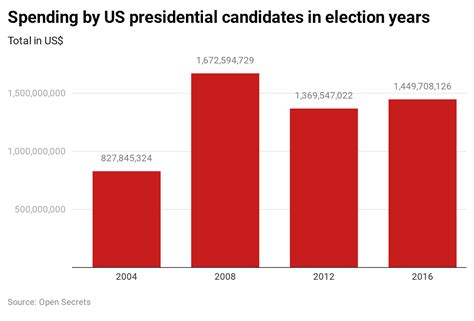What are Independent Expenditures?
Independent expenditures are political expenditures made outside of the campaign finance limits imposed on candidates and political parties. These expenditures are made by individuals, organizations, or corporations that are not directly affiliated with or coordinated with any candidate or party. The purpose of independent expenditures is to influence the outcome of an election by supporting or opposing a particular candidate or party.

According to the Center for Responsive Politics, independent expenditures totaled over $1 billion in the 2020 election cycle, a record high. This surge in spending has raised concerns about the potential for undue influence by wealthy individuals and corporations on the electoral process.
Key Features of Independent Expenditures
- Independent: Independent expenditures must be made without any coordination or consultation with a candidate or political party.
- Unlimited: There are no limits on the amount of money that can be spent on independent expenditures.
- Transparent: Independent expenditures must be disclosed to the Federal Election Commission (FEC) and state election authorities.
- Influential: Independent expenditures can have a significant impact on the outcome of an election, especially in close races.
Types of Independent Expenditures
- Express Advocacy: Expenditures that explicitly advocate for or against a candidate or party.
- Issue Advocacy: Expenditures that focus on issues related to a candidate or party but do not explicitly advocate for or against them.
- Voter Mobilzation: Expenditures that encourage people to vote for a particular candidate or party without explicitly advocating for them.
Pros and Cons of Independent Expenditures
Pros:
- Free Speech: Independent expenditures protect the First Amendment right to free speech, allowing individuals and organizations to express their political views.
- Diverse Perspectives: Independent expenditures can provide diverse perspectives and viewpoints on candidates and issues, enriching the public discourse.
- Campaign Finance Reform: Independent expenditures can help reduce the influence of wealthy special interests by providing a way for grassroots organizations to have a voice in elections.
Cons:
- Donor Anonymity: Independent expenditures can be anonymously funded, potentially allowing wealthy donors to exert undue influence without public accountability.
- Outside Interference: Independent expenditures can come from outside sources, potentially influencing the outcome of elections in a way that does not reflect the will of the local electorate.
- Negative Campaigns: Independent expenditures are often used to run negative attack ads, which can damage the reputation of candidates and undermine public trust in the electoral process.
Common Mistakes to Avoid
- Coordination: Independent expenditures must be made without any coordination with candidates or parties. Any evidence of coordination can result in legal consequences.
- Improper Disclosure: Independent expenditures must be properly disclosed to the FEC and state election authorities. Failure to disclose can lead to fines and other penalties.
- Express Advocacy: Independent expenditures must not explicitly advocate for or against a candidate or party. Issue advocacy and voter mobilization are permissible forms of independent expenditures.
Effective Strategies for Independent Expenditures
- Target Key Races: Focus on races that are close and where a relatively small amount of spending can have a significant impact.
- Research and Messaging: Conduct thorough research to identify the most effective messages and target audiences.
- Build Coalitions: Partner with other organizations and individuals who share similar goals to maximize the impact of independent expenditures.
- Transparency: Ensure that all independent expenditures are properly disclosed to maintain public accountability.
Conclusion
Independent expenditures are a powerful tool that can influence the outcome of elections. While they offer some benefits, such as free speech and diverse perspectives, concerns remain about the potential for undue influence by wealthy donors and outside interests. It is crucial for policymakers, candidates, and citizens to carefully consider the role of independent expenditures in the electoral process and to ensure that these expenditures are made in a transparent and accountable manner. By understanding the definition, characteristics, and strategies associated with independent expenditures, we can better navigate the complexities of modern election campaigns.
